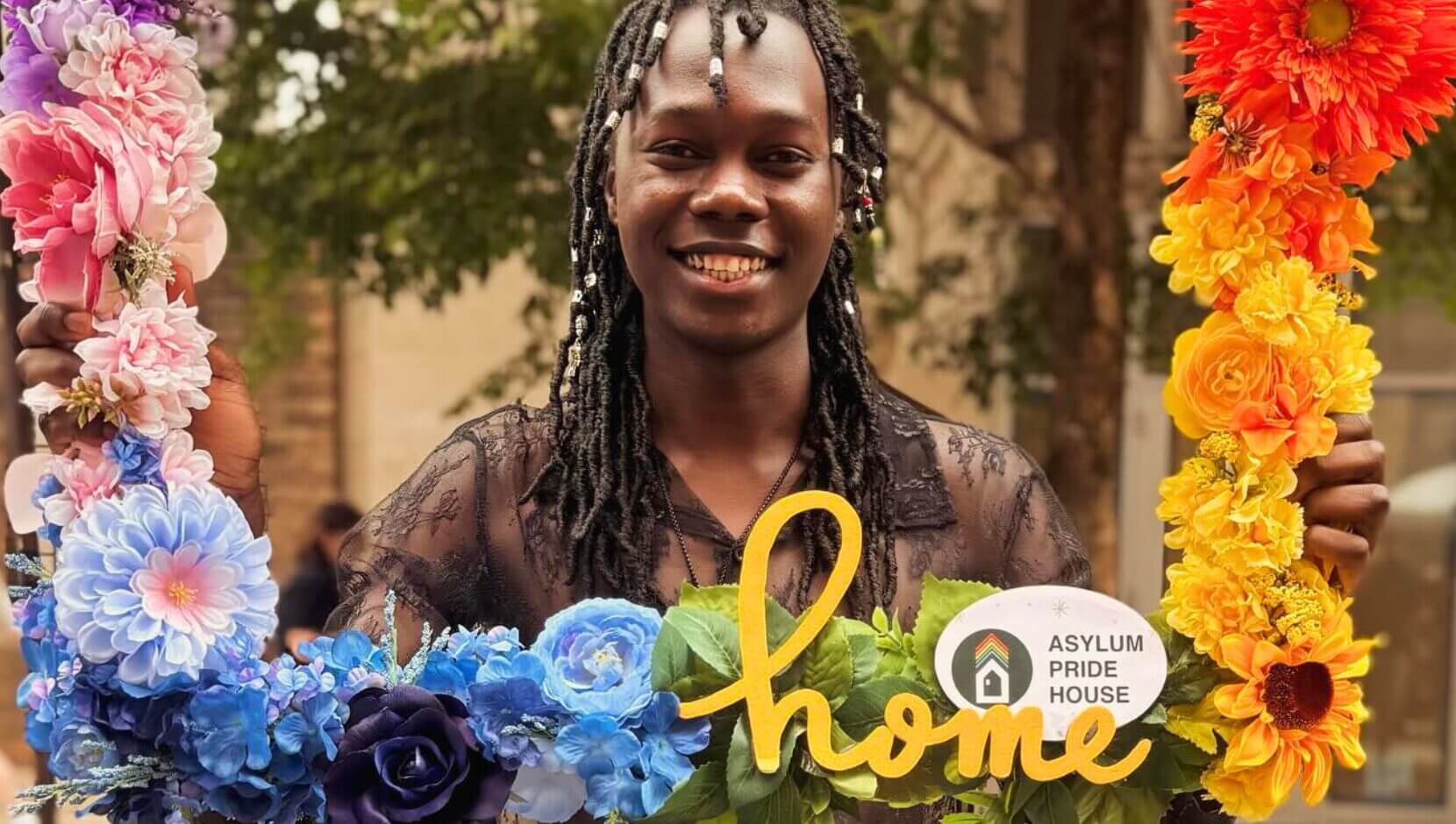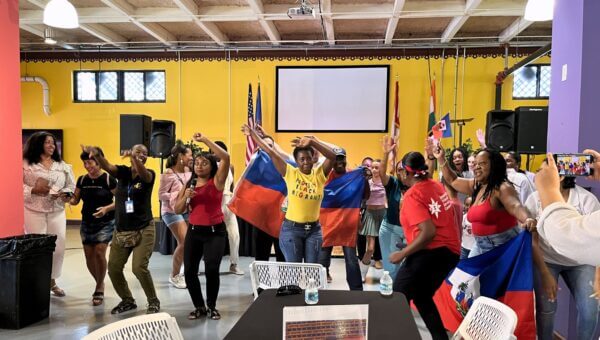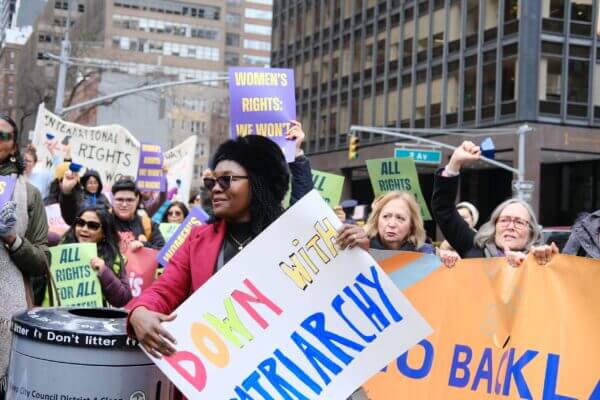Human rights advocate Noah Bullock says, “The actions we take today contribute to a longer process, even if we don’t see the outcome in our lifetime.” Anyone working in the justice movement knows that progress is often gradual. If we don’t get to see our efforts come to fruition, then how can we measure achievement?
Asylum Pride House (APH) offers a comprehensive model of success. In its five-bedroom home, APH welcomes LGBTQI+ people in migration from around the world. APH residents have come from Honduras, Guinea, Sierra Leone, China, Venezuela, and more. Some are referred through national agencies or immigration organizations, but others find APH on their own.
For the past three years, APH has functioned as a pilot program. As the only U.S. organization providing communal housing and case management for LGBTQI+ asylum seekers, Executive Director Victoria Sirois and her team had to start small. Sirois needed to confirm that APH’s service model worked and that the programming was responsive to the community’s needs.
Now, several rounds of the organization’s clients have successfully obtained work authorization, jobs, independent housing, and social support, transitioning out of the APH house. “Just this summer we had five folks that we were able to place into our house because other individuals were moving out…that’s a huge turnover in our program,” Sirois said.
The numeric data is, of course, essential. APH’s high turnover is proof of the organization’s success. Another important metric is call volume. In the past six months, staff has been contacted weekly by LGBTQ+ asylum seekers looking for housing and case management. The organization has had to turn people away due to their lack of capacity.
While the quantitative data is compelling, it’s only half of APH’s story. APH doesn’t measure success by its number of transitioned residents alone. The team is equally invested in creating a true community, ensuring that past, present, and future residents have a hub of connection and sense of belonging. Past APH residents return to the house to volunteer with spring cleaning. They’ll throw potlucks with current residents and attend organizational events.
“Within the queer community and the immigrant community, there are a lot of challenges around isolation,” Sirois said. “The whole purpose of why we went with a more community style housing model is because we wanted to combat that type of isolation. We want to help address the mental health issues that come along with the process of seeking asylum…We want to see folks make truly lasting friendships and bonds.”
In the philanthropic sector, it’s common for funders to prioritize numerical, quantitative data. While this measure of success is important, failing to consider narrative, qualitative data ultimately erases the depth of human rights work and the humanity of folks served by social justice organizations.
“We work within…a community that has historically never been well served by the philanthropic community,” Sirois said. “We rely on individual donors, small family foundations that trust us, UUSC, and faith communities that really see that this work is needed and trust that we’re capable of doing it.”
Asylum Pride House exemplifies what’s possible when funders support justice organizations’ comprehensive goals. Learn more about their work in this year’s Guest at Your Table program, and make a contribution today to support their work. UUSC’s members help chart a new path for philanthropy that respects the expertise of grassroots leaders. Support from people like you is essential in the movement for collective liberation.



